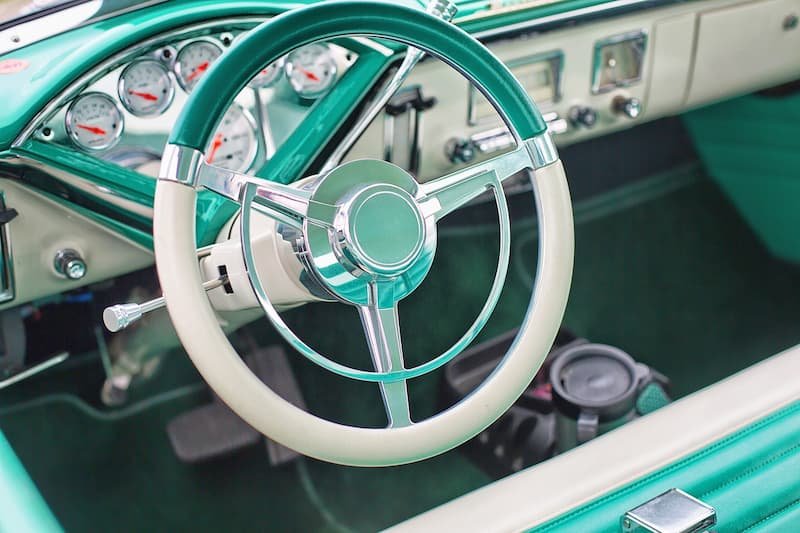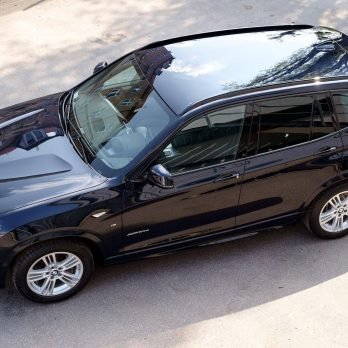Table of Contents
Classic cars are more than just vehicles – they’re a passion, a hobby, a tangible piece of history, and sometimes, a worthwhile investment. However, buying a classic car involves more than just choosing a model you like.
Here’s a handy guide to help you navigate the process so you can stress less along the way and make the right choice when you buy.
Understand Your Motivation
Before you start looking for a classic car, it’s essential to understand your motivation for buying one. Knowing why you want a classic car can guide your search and influence the type, condition, and price of the car you should consider.
For example, are you interested in a weekend driver, a car for classic rallies, or a long-term investment? Perhaps you have one specific dream car in mind that you’ve always longed for and can now finally buy? The clearer you are on your needs and wants, the easier it will be to narrow down your search.
Research Thoroughly
Once you’ve established your motivation, dive deep into research. Familiarize yourself with the different makes and models you can choose from, their histories, and their unique quirks. Look for resources like car clubs, classic car shows, online forums, and classic car magazines as a source of data. Learn to understand the market value of different models and what affects their price so you know a good deal when you find one, too.
Inspect the Car

Never buy a classic car sight unseen. Even if you’re purchasing online, make arrangements to inspect the car in person. In particular, look for signs of rust, especially in the car’s frame, as it can be costly to repair. Check the car’s interior for any signs of wear or damage.
You want to ensure all the lights and signals work properly, and don’t forget to check the trunk for leaks or rust. The condition of the tires can also give you an idea about how well the car has been maintained over the years.
Take It for a Test Drive
It’s also crucial to take the car for a test drive. Try to take it in quiet areas so you can hear more, but also take it on a highway or other speedier road where possible. Listen for any unusual noises coming from the engine, and pay attention to how the car handles, accelerates, and brakes. This information can provide vital clues about the car’s condition and whether it’s worth investing in or not.
Get a Professional Inspection
While your inspection can give you a general idea about the car’s condition, it’s wise to have the car checked by a professional mechanic specializing in classic cars before you sign on any dotted lines. A mechanic can provide a detailed assessment of the car’s condition, identify any potential issues, and estimate the repair costs that might be involved in bringing the vehicle back to its former glory. Knowing these details can then help you negotiate the price or reconsider your decision.
Consider the Availability of Parts
Some classic cars have readily available parts, while others don’t. If you’re planning to restore or maintain the car yourself, consider how easy it will be to find parts and how costly they might end up being. Cars with rare parts can be more challenging and expensive to maintain or restore.
Understand the Cost of Ownership
Keep in mind, too, that owning a classic car involves more than just the purchase price. For example, there are insurance, storage, maintenance, and possibly restoration costs. Make sure you have a realistic idea of these costs and that they fit into your budget before going ahead with a purchase.
Restore and Maintain Your Classic Car

A classic car isn’t like a modern vehicle that can be taken to any local mechanic for repairs. They require specialized care and, potentially, lots of patience. Before diving into a restoration project, assess the extent of work needed and your ability to carry it out. If you’re a novice, starting with a car in fair condition that requires minor work could be a good idea.
Maintaining a classic car involves regular check-ups to ensure the engine, brakes, and other systems are in good working order. Rust prevention is also critical. The car will need to be stored in a dry, protected environment to prevent moisture-related damage.
Consider connecting with local classic car clubs or online communities, as they can offer valuable advice and resources for maintaining and restoring your car. Learn which mechanics tools you may need on hand and pick up tips on best practices and mistakes to avoid.
Buying a classic car is a journey that can be as rewarding as it is challenging. By following these tips, you can confidently navigate the process, ensuring you find a classic car that brings joy and potentially, a good return on your investment.
If you don’t decide to buy at the moment, you can rent a classic car in many locations around the world. Try our search engine:










